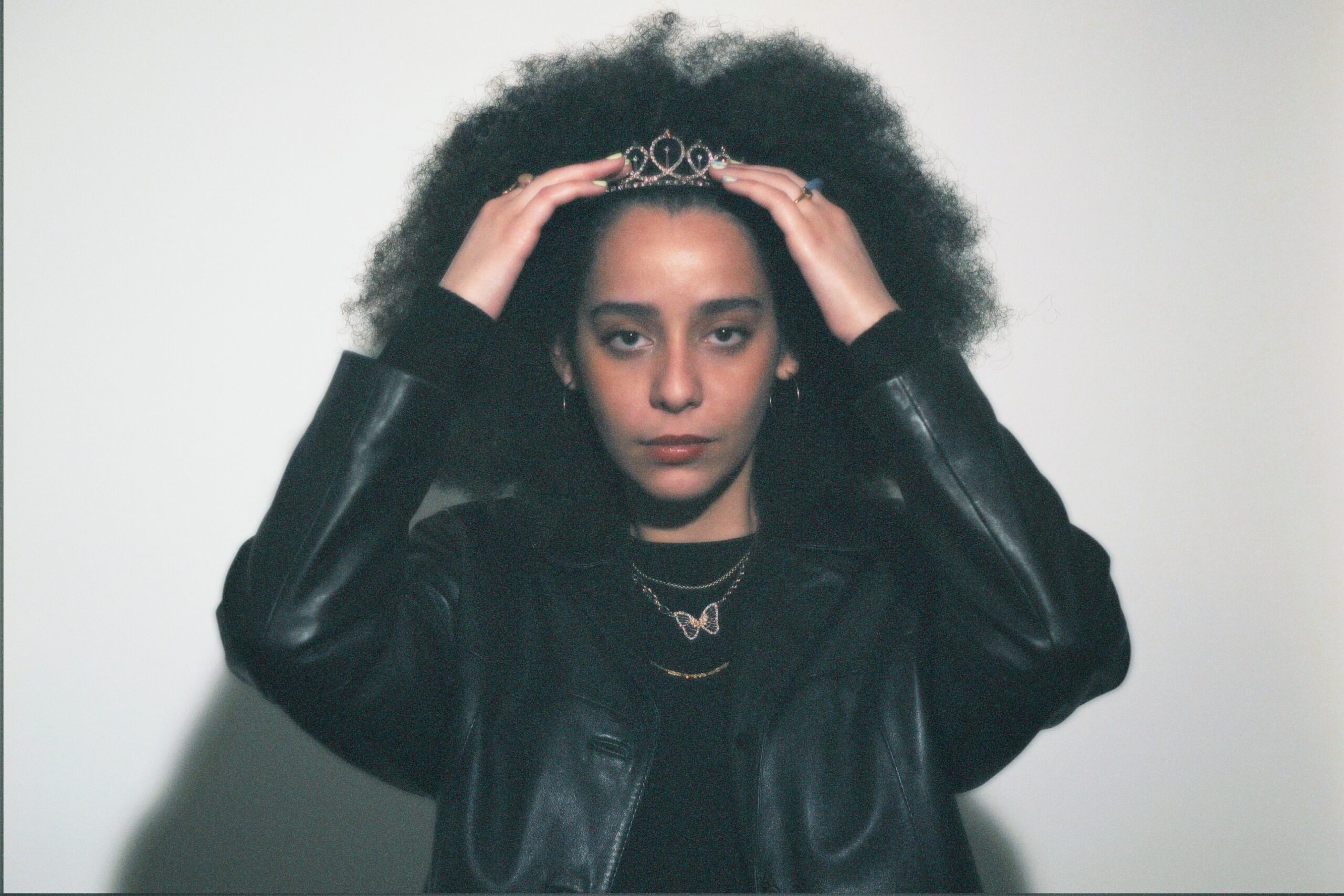Just Focus had the opportunity to interview Ballaké Sissoko and Vincent Ségal before their concert at the Alyscamps as part of the Precious Moments of the Festival des SUDS d'Arles, on July 18, 2020.
***
Majdoline (Just Focus editor): You are traveling musicians. You have traveled the world, traveled with your music. I imagine that the trip also allowed you to discover other music and to be influenced by them. What is your relationship to travel in your creative process? Could you share an anecdote of your travellet encounters? Ballaké Sissoko: The trip is always at the request of the people who listen to us and it depends on our work as well. It is the reward for the work we are doing. We are very open to discover other realities. Vincent Segal : Alone while traveling, I sometimes think of musical encounters that can be a few minutes. For example, in Mali, I will always remember the mischievous children and one in particular. He told me "I can play better than my big brother tamani [1]!». He stung his brother's tamani without telling him, he blew me away because he played really well but he exploded his skin! He must have been yelled at! – Laughter It's very important when you're in a foreign country to watch children. In Senegal, I learned children's nursery rhymes. These are the first things someone learns, a nursery rhyme. After that, he continues to evolve on his life trajectory. There are some countries where I knew I wasn't going to see people again because they are hard-to-reach places, or at war… I often think about these very strong friendships. During the lockdown I thought a lot about Pakistani, Indian or Afghan musician friends… who have experienced unimaginable precariousness… I'm not going to complain because we're confined for a while. They have a lot of problems to find the strings, the instruments, to be able to play, to be able to sing! I have an Iranian violinist friend in France. She released a very beautiful album with Accords Croisés. Once I said to him " but why did you come to Paris to sing? ». She said, " Because I can't sing in Iran! ». In fact, all these encounters feed my cello. Majdoline : What are your acting and improvisation techniques? Following the release of your two albums, you have developed new playing techniques? Are there things that have revealed themselves in your work as a duo? Ballaké Sissoko: From the beginning until now I am very happy because there is a lot of evolution in terms of rhythm and improvisation. With the meetings, we had a lot of exchanges. I learned many things and so did he. It's a real encounter. Everyone has worked a lot on their side even if we are not always together: we have the spirit. Vincent Segal: Ballaké has integrated a lot of knowledge. We've both been playing instruments for a very long time. But I would say that he started traveling professionally at 12 years old! I've never done that at 12! – Laughter. Majdoline: Was it with the National Instrumental Ensemble of Mali? Ballaké Sissoko and Vincent Segal: Yes! Vincent Segal : Depending on the situation, Ballaké adapts according to the musicians with whom he plays, a bit like a great sportsman. He prefers it to be beautiful simple music, but at least he's sure it holds. There is something virtuoso. That's what great virtuosos are: people who position themselves to make it comfortable, not to crush people. For this I am very indebted to him. In the end, we have never worked on a piece, we have never rehearsed in the sense that we learn a piece, a repertoire. It's up to both of us to do the work on our side. When we play we converse. The songs we often play are the same. For example, we always start concerts with the same piece. In reality, it is never played the same way. There is something that is not of the order of the repertoire. The two records are like photographs of what we were doing at that time. But in fact, we had been playing for years before. We didn't have an album. It was Ballaké who invested. We recorded in Salif Keita's studio. Majdoline: It was in 2009, the first album Chamber Music. The second Night Music was recorded on the roof of Ballaké's house. Ballaké Sissoko and Vincent Segal: Yes! Vincent Segal : Before we played for years but without necessarily recording. Then we started having concerts. We travelled. Then Ballaké said to himself "if we have an album, it's still not bad "! Majdoline : It is ultimately your relationship with the audience and the scene that preceded the recording of the albums. Vincent Segal: We're already playing for ourselves. Then we start playing our music to the neighbors. People listen, say " oh that's what you're doing! ». People who knew us programmed us precisely because they knew us. For example, at the Opéra de Lyon, the programmer who knew Ballaké offered him carte blanche. Ballaké offered me to play. I told him " we're not ready! ». Ballaké said " if we play like that! ». That's what we did. We never changed that actually. Majdoline: Going back to your composition process. Your music is the legacy of African classical music and many other influences, which are both oral music, written music… Your music is a two-way conversation. You don't necessarily write. Vincent Segal: For my part, I will always have a reflex to note. Before I had notebooks where I wrote down things, ideas… I do it less and less. I am convinced that the less I read, the better I play all the music. Majdoline: It is a form of freedom to free oneself from the score and the written word. Vincent Segal: We know better when it's in the head. I love reading music, I love to decipher but I have noticed that with age, I prefer concerts where I play everything, without reading a score. When we read we worry about things that are not the very essence of music. Orality is the very essence of the arts, of all the arts. Even among great writers we feel the orality, the saying in the text. The writers I love are writers like Flaubert. We feel that he speaks, that he tells… Majdoline: You have very strong roots with traditional music in particular. This gives you a great form of freedom. Often we think of tradition as a conservation, something that has to do with the past, that is frozen. Yet it is more a question of taking the heritage of the past but with our codes of the present, making something new.What is the future of traditional music, especially on the African continent? Ballaké Sissoko: That's a very nice question. The legacy of the past and tradition is being lost, especially for Mandinka melodies. There are hundreds and hundreds of pieces. I work a lot with people who worked in the 1960s. I have a lot of melodies that I understand. I don't change these melodies much, I try to make it listening. It took me a long time. When we talk about traditional African music we immediately think of percussion. Yet it is very diverse, there are many things! The National Instrumental Ensemble of Mali helped me share with other musical families. That's where I learned to develop my ear. When I play, my thoughts follow these melodies and I look for something else. There are a lot of collaborations I've done, musical exchanges with other cultures. I tried to do it in my own way but keeping the essence of tradition. Vincent Segal: It's very complicated to explain what traditional music is. For example, I can't get the sound of my cello teacher. Ballaké does not have the sound of his father. Already from one generation to another, it is something else. Kassé Mady Diabaté is for me a great traditional musician, a great creator, someone who had a great memory. Every time he sang, I saw that he had lots of ideas. When Ballaké was with him, he had at a point! At his age he had this knowledge that we will have. I know I already have this more than when I was twenty, but he was at an important point, he knew well. In every village there are people who have influenced and been creators in traditional music. Everywhere I've been, Ireland, Scotland, Africa, India… I saw how, the most important thing, is the musicians who have scored individually. Those with such strength of character and music that people talk about it. We realize that in every era something we thought was traditional is not. I hear a solo, thinking, " This is a traditional way ." I am told " no actually the guitarist took a phrase from a musician that guitarists like ". When we play, Ballaké has lots of phrases that date from the National Instrumental Ensemble of Mali but he puts them in his own way. Sometimes we shift them ourselves and that's good! Why not? [1] The tamani is an armpit drum. It is played using a small curved wooden wand while the fingers of the other hand rest on the skin. The tension of the skin is modular by pressing the instrument under his arm. Its extraordinary sound modularity has given it the nickname "Talkingdrum".
***
End of interview.
Just Focus warmly thanks Ballaké Sissoko and Vincent Ségal for agreeing to answer questions and the Festival des SUDS d'Arles for making this meeting possible. VIDEO Photos : Marion Poudevigne and J.Paul Gambier





































